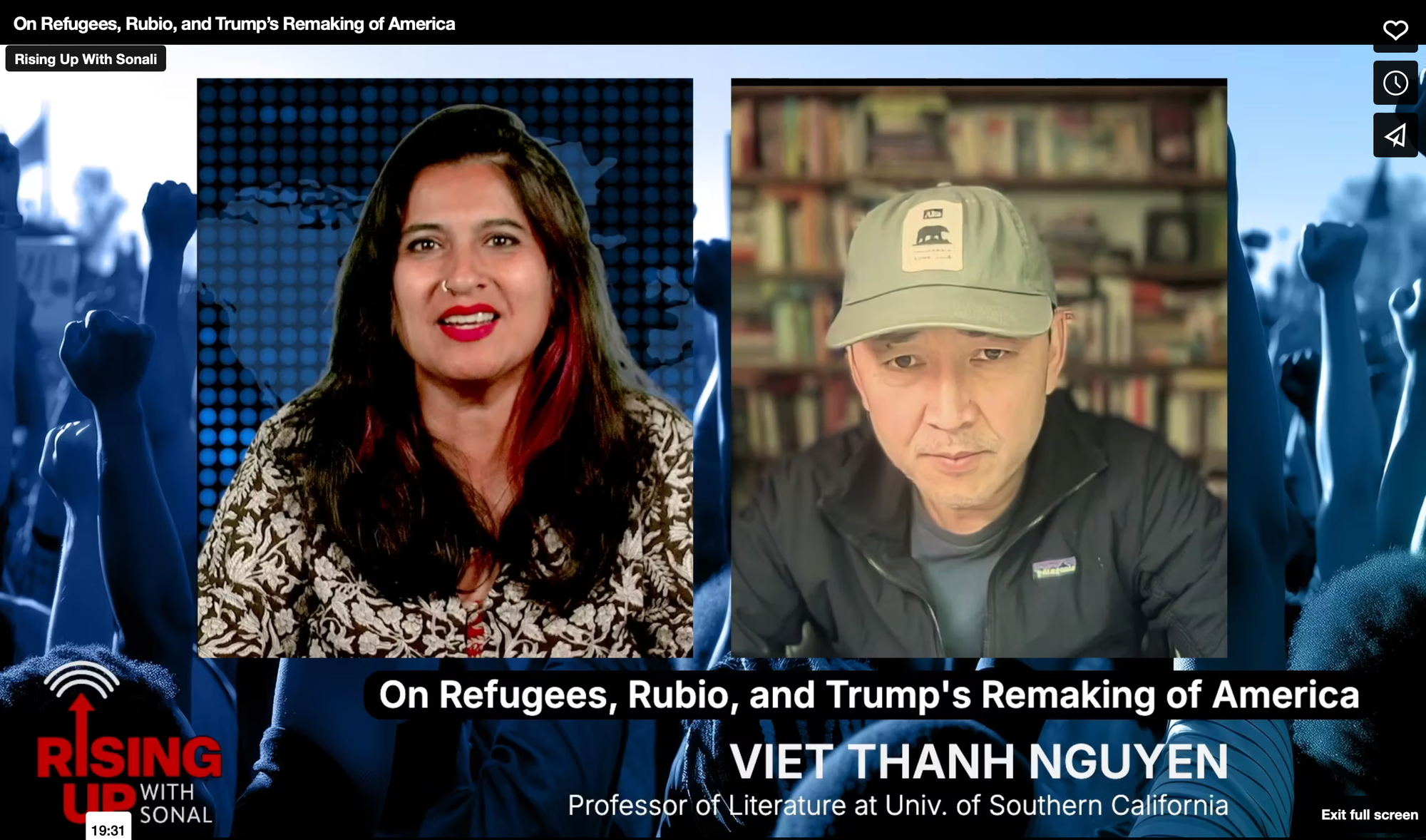FEATURING VIET THANH NGUYEN - There is a profound irony in the fact that many of the US’s greatest contributors to art, culture, and innovation, are nonwhite immigrants and refugees. In Donald Trump’s bid to “Make America Great,” he pushes those very people to make better art, to enrich the nation’s culture with their resistance.
Among them is a writer whose work many have admired, Viet Thanh Nguyen is a professor of English, American studies and ethnicity, and comparative literature at the University of Southern California. His novel The Sympathizer won the 2016 Pulitzer Prize for Fiction.
ROUGH TRANSCRIPT:
Sonali Kolhatkar: Welcome to the program Prof. Nguyen.
Viet Thanh Nguyen: Hi Sonali, glad to be here with you.
Kolhatkar: So Let's talk about the story that you wrote for The Nation. It's about a country that you're not from, but the country that you visited earlier this year, that ended up being very much in the news, and that has a really sordid history, if you will, with American politics. And that's El Salvador, almost as sordid, perhaps just as sordid as the history of the US' involvement with the country of your origin. Vietnam. You went to El Salvador at the same time as Marco Rubio was there. And what did you come back with when you returned to the US and wrote this piece and El Salvador was suddenly in the news for its concentration camps?
Nguyen: My timing could not have been better. So there's that bright side of things. But yes, I showed up on the same day that Marco Rubio was in San Salvador, and he was there to sign the prison deportation agreement with President Bukele. And I was there to look at the history of US-sponsored massacre during El Salvador's civil War. And those two things actually completely converged. They're part of the same historical timeline and part of the same historical timeline that brought me as a refugee from Vietnam to the United States in 1975.
I was brought to the United States because of the history of the war in Vietnam that the United States had a major role in. And when I came to the United States, I grew up as an American, was very precocious, read newspapers at a young age. And I was reading about El Salvador's civil war in the late seventies and early eighties, including the infamous El Mozote massacre and other kinds of atrocities that the US trained military was committing.
And so, El Salvador had always been in my mind as a place that I wanted to know more about given that kind of history. And I took the first opportunity I could, very late in my life, to go to El Salvador.

